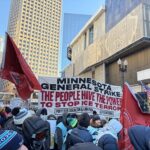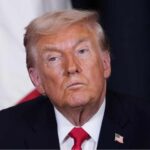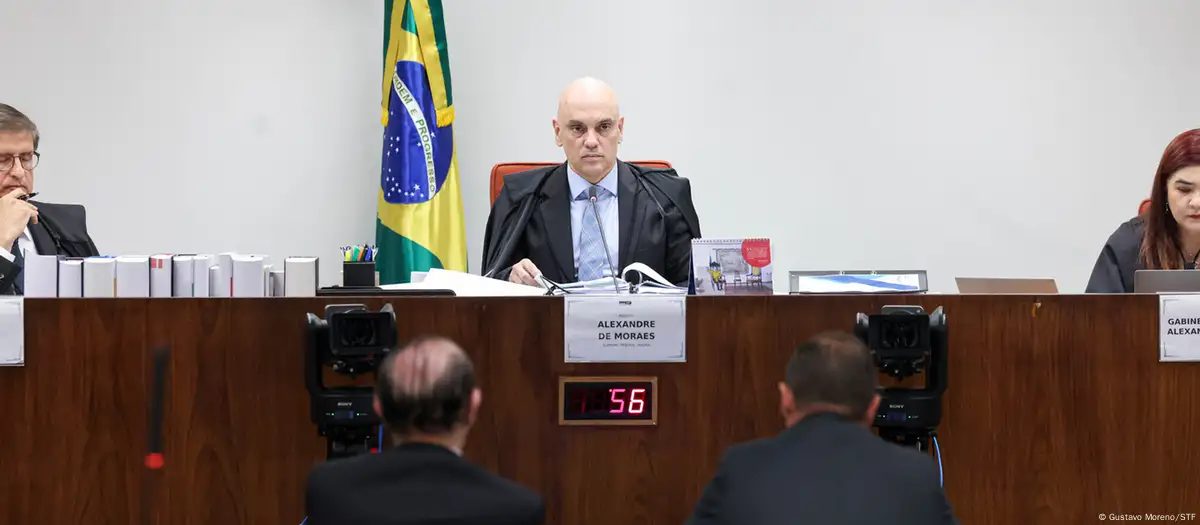
The American sanction has already been used against hundreds of individuals and entities accused of terrorism, massacres, human trafficking and corruption. Judges frame is rarer.
The sanctions imposed by the United States on Wednesday (07/30) to the Supreme Court Minister (STF) Alexandre de Moraes, based on magnitsky law, insert the magistrate into an extensive list of people considered by the US government as human rights violators or corruption.
In force since 2012, the mechanism allows the application of unilateral economic evaluations, such as the blocking of goods and assets located in the US. Part of those affected to this day includes individuals responsible for violence against ethnic minorities, human trafficking, murders or bonds with specific organizations such as terrorists.
According to US government data, by the beginning of 2024, the measure has been used by the US to block 650 targets and companies since 2017. The global Human Rights First organization, which accompanies the application of the law, calculates a smaller number: 602 sanctioned from 54 countries between 2017 and May 2025. Entities represent more than half of this total.
At least 406 targets were sanctioned by corruption, 180 for human rights violation and the rest for the two accumulated motives. To date, no Brazilian had been the subject of the rule, although other types of evaluations were applied by the US to Brazilian criminal organizations, such as the First Capital Command (CCP).
USA point to the repression against Minoria Uiguur, China | Tayfun Salci/ Imago Images/ Zuma Wire
Approved legislation against disclosure in Russia
The legislation was approved in the US in 2012, in the Barack Obama government, initially designed to punish those responsible for the death of lawyer and Russian activist Sergei Magnitsky, killed in a Moscow prison in 2009 after investigating a tax fraud scheme investigated by authorities in the country.
At the time were sanctioned people related to their arrest and death, such as the head of investigation that would have denied medical treatment to the activist, prosecutors and the investigator linked to the case.
In 2016, the US Congress approved the so -called Global Magnitsky Law, extending the application of the device to agents and authorities of governments from anywhere in the world.
In addition to Moraes, the list is at least four judges. Two Ugandians accused of corruption and two Russians who determined arrests against Kremlin critics. The most recently sanctioned, Olesya Mendeleeva, is pointed out by the White House as responsible for the “arbitrary” arrest of Alexei Gorinov, Russian councilman who criticized the war released by the Russian regime against Ukraine.
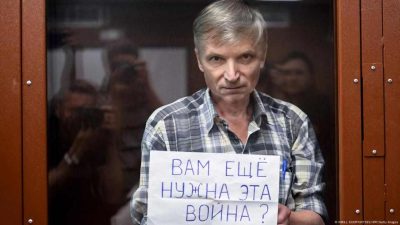 Alexei Gorinov was the first arrested for anti-war comment in Russia. Case Judge became the US target | Kírill Kudryavtsev/AFP/Getty Images
Alexei Gorinov was the first arrested for anti-war comment in Russia. Case Judge became the US target | Kírill Kudryavtsev/AFP/Getty Images
Massacres, terrorism and corruption
Most of those sanctioned since then participated in flagrant actions in repressive regimes, such as a list of military and Infantry Battalions of Myanmar, accused between 2018 and 2019 of “violent campaigns against minority ethnic communities […] including ethnic cleaning, massacres, sexual aggressions, extrajudicial executions. ”
Also on the list is the leader of Chechnya Ramzan Kadyrov, known as the staunch ally of Russian President Vladimir Putin and leader of the Kadyrovtsy militia. It is believed that the group would have committed widespread human rights abuses, ranging from kidnappings and torture to murders.
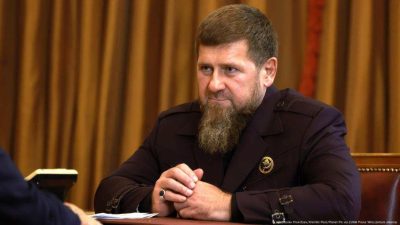 Checker Leader Ramzan Kadyrov is accused by connections to cases of kidnapping, torture and murders | Vyacheslav Prokofyev/Kremlin Pool/Planet Pix Via Zuma Press Wire/Picture Alliance
Checker Leader Ramzan Kadyrov is accused by connections to cases of kidnapping, torture and murders | Vyacheslav Prokofyev/Kremlin Pool/Planet Pix Via Zuma Press Wire/Picture Alliance
In the same order against Kadyrov, Haitian gang leaders were sanctioned by the La Saline neighborhood in 2018, which left 26 people dead, including children.
One of the most sanctioned countries is Bulgaria, with 79 entities and individuals linked to cases of corruption. Among those impacted by the law are the CSKA Basketball Club, lottery and betting houses and other companies linked to oligarch Vassil Bojkov.
In China, some sanctioned are members of the Communist Party of China and are accused of disseminating human rights against the Uigures, a Muslim population from the Xinjiang territory in the northwest of the country. “According to reports, they include mass arbitrary arrests and serious physical abuse,” the White House justifies. Chinese maritime companies are also accused of illegal fishing with the use of work requested in their operations.
In South America, one of the names that entered the US sights is the former president of Paraguay, Horacio Cartes, the target of Operation Lava Jato, for “unbridled corruption that impairs the country’s democratic institutions”.
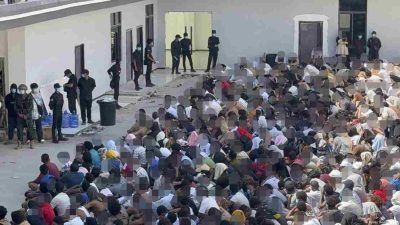 Responsible for human trafficking and work provoked at a digital blow factory has also been sanctioned | Kyodo News/Imago
Responsible for human trafficking and work provoked at a digital blow factory has also been sanctioned | Kyodo News/Imago
Violations against women and human trafficking
There are also analyzes linked to the Taliban, an Islamic fundamentalist movement that took power in Afghanistan. The most prominent names are the Minister of Higher Education, Neda Mohammad Nadeem, and the Minister of Propagation of Virtue and Repression of Addiction, Muhammad Khalid Hanafi.
They are accused of implementing discriminatory policies against women who are deprived of rights such as education, employment, movement, among others.
In the Philippines, Pastor Apollo Carreon Quiboloy also had his goods blocked in the US for evidents against women. According to the White House, for over a decade, it has been involved in serious human rights revelations, “including a standard of systematic and widespread rape of girls up to 11 years old.”
Also in the east Asian, Cambodian Ly Yong Phat was listed by commanding a human trafficking network and work convened in digital blow centers.
Originally published by DW on 07/31/2025
Source: https://www.ocafezinho.com/2025/07/31/alem-de-moraes-quem-ja-foi-alvo-de-lei-magnitsky/
